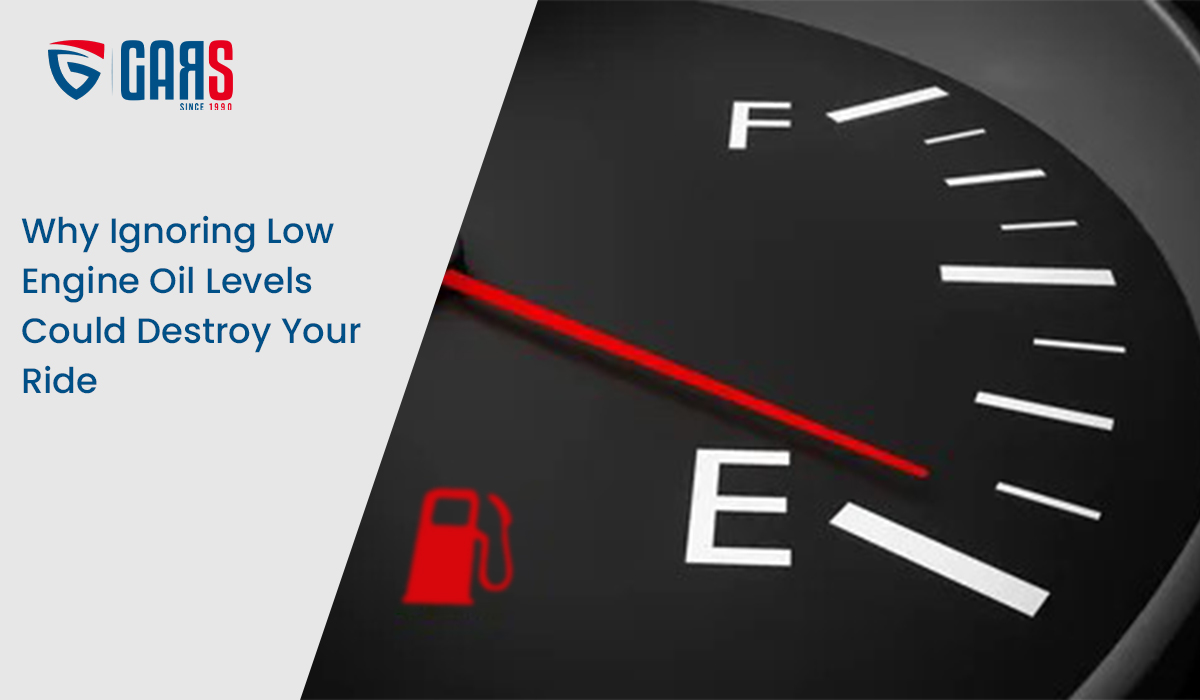Why Ignoring Low Engine Oil Levels Could Destroy Your Ride

Why Ignoring Low Engine Oil Levels Could Destroy Your Ride
Well-maintained engine oil is the key to a comfortable, safe drive. There is one maintenance item that, unless attended to, silently causes havoc and leads to huge expenses in repairs, ensuring it somehow remains neglected: measuring the engine oil level. In this sense, engine oil is not just a simple option on the list-whether it is there or the engine simply will not run, having smooth working of components as compensation. This guide will, first of all, explain the importance of engine oil and the conditions that arise when the oil is inadequate, and briefly examine how simple checks can prevent major problems.
When oil goes low, these functions protect the engine. Components wear out, temperature increases, and deposits set in-welcome to severe engine problems on account of a possible silly oversight.
Read more about engine oil quality: How To Easily Check The Quality Of Your Engine Oil
Recognizing these signals early allows time for correction before damage occurs.
Failing to address these indicators reduces engine lifespan and compromises reliability.
It's cheaper to monitor oil regularly than to repair the damage caused by neglect.
On-time maintenance guarantees smoother and reliable operation with lower cost implications in the long run.
The Role of Engine Oil
Engine oil does three main jobs:- Provide lubrication to moving parts to reduce friction
- Control engine temperature by dissipating heat
- Act as a cleaning agent by collecting contaminants to avoid harmful deposits
When oil goes low, these functions protect the engine. Components wear out, temperature increases, and deposits set in-welcome to severe engine problems on account of a possible silly oversight.
Read more about engine oil quality: How To Easily Check The Quality Of Your Engine Oil
Common Signs of Low Engine Oil
Watch for these warning signs in your car:- Metal-on-metal noises from the engine
- Persistent smell of burning oil
- Oil or engine light warning on the dashboard
- Loss of power or delayed acceleration
Recognizing these signals early allows time for correction before damage occurs.
Immediate Effects of Low Engine Oil
When engines operate with insufficient oil, these problems develop:- Friction causes damage to the engine components
- Increasing temperature causes damage by breaking down
- Accumulation of debris blocks channels in the engine, thereby reducing performance
Failing to address these indicators reduces engine lifespan and compromises reliability.
Long-Term Damage from Low
Continuous low oil operation causes major issues:- Irreparable damage with implications for pistons and crankshaft
- In some rare cases, destruction of the engine ensues, requiring really expensive solutions for repairs.
- Higher maintenance costs from totally avoidable damages.
It's cheaper to monitor oil regularly than to repair the damage caused by neglect.
How to Check and Maintain Engine Oil
Follow these important maintenance steps for Engine Lubricants:- Oil level must be checked on a monthly basis with a dipstick.
- Never postpone addressing warning lights.
- Use the engine oil recommended by the manufacturer.
- If problems persist, consult a professional.
On-time maintenance guarantees smoother and reliable operation with lower cost implications in the long run.
Preventive Tips for Engine Health
- Follow the recommended schedule by the manufacturer.
- Use only good-quality oils and filters.
- Keep a close eye on any changes in engine sounds and performance, and warnings.
